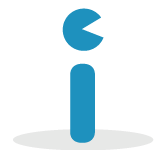The link between exercise and sports participation and substance use.
There is conflicting evidence in the literature as to whether exercise and sports participation is linked positively or negatively to substance use.
To illustrate, research has indicated that exercise and sports/leisure activity participation is associated with substance use, and as such that leisure may be an important context of substance use prevention. For example, Moore and Werch (2008) examined self-reported exercise frequency and substance use among first year college students who self-identified as drinkers (n = 391) and found that frequent exercisers drank significantly more often and a significantly greater quantity than did infrequent exercisers.
Huurree et al (2010) found that among adolescent Finnish males, leisure-time spent daily among friends (among other factors including parental divorce) was a strong predictor of excessive alcohol use in adulthood. Tibbits et al (2009) examined the association between leisure activity participation and substance use among South African 8th graders (n = 3,497) and found that leisure activity profiles were significantly associated with past-month alcohol, tobacco, and marijuana use. Peck et al (2008) reported that childhood problem behaviour and adolescent sport participation can, but do not necessarily, predict heavy drinking in adulthood. They analysed data from four waves of the Michigan Study of Adolescent Life Transitions which provided data on participants aged 12 to approximately 28 years. They found that the relationship between adolescent sport activity and heavy alcohol use in later life was obtained primarily for sport participants who were also using more than the average amount of alcohol and other drugs at age 18. Similarly, children who were characterised by relatively high levels of sport participation, aggression and other problem behaviour at age 12 were more likely to become sport participants who used more than the average amount of alcohol and other drugs at age 18.
Mays et al (2010) investigated the relationship between school-based sports participation and alcohol-related behaviours using data from the National Longitudinal Study of Adolescent Health collected between 1994 and 2001 (n=8,271). The results indicated that greater involvement in sports during adolescence was associated with faster average acceleration in problem alcohol use over time among youths who only took part in sports, indicating that the relationship between sports participation and problem alcohol use depends on participation in sports in combination with other activities. They concluded that sports may represent an important context for alcohol interventions among adolescents.
Finlay et al (2012) conducted surveys with first year college students (n = 717) examining the relationship between day-to-day activities (volunteering, spiritual activities, media use, socialising, entertainment/campus events and clubs, athletics, classes, working for pay) and alcohol use. Findings indicated that alcohol use was higher among individuals who spent more time involved in athletics and socialising and lower among students who spent more time in spiritual and volunteering activities.
However, other studies have shown a positive relationship between participation in sports and exercise and substance use.
Taliaferro et al (2010) highlighted that the ways in which adolescents spend their out-of-school time is an important factor for predicting positive youth development. They examined relationships between sport participation and numerous health risk behaviours among high school students. Data from the Youth Risk Behaviour Surveys (from 1999 through 2007) was analysed. They found that among white students, sport participation related to multiple positive health behaviours. Conversely, ethnic minority athletes showed fewer positive health behaviours and some negative behaviours. Martha et al (2009) examined the relationship between sports and alcohol consumption among French students (n = 1,356). Results indicated that engaging in physical activity (whether or not it takes place within an institution) and practising martial art were negatively related to heavy episodic drinking.
Terry-McElrath and O’Malley (2011) investigated the relationship between participation in sports, athletics or exercising and substance use in early adulthood using longitudinal data (n = 11,741). Results indicated that increased participation in sports, athletics or exercising was related to significantly lower substance use frequency at age 18 and through significantly and negatively correlated growth trajectories through early adulthood. Thus, they concluded that encouraging exercise among young people may relate to lower substance use levels throughout early adulthood. However, additional research by Terry-McElrath et al (2011) highlighted an important difference between exercise and team sport participation in relation to adolescent substance use. Using longitudinal data, they found that higher levels of exercise were associated with lower levels of alcohol, cigarette, and marijuana use but that higher levels of athletic team participation were associated with higher levels of high school alcohol use.
Other research has indicated mixed results for different types of substance use, generally indicating that sport is negatively associated with alcohol but positively associated with tobacco and cannabis use. For example, Lisha and Sussman (2010) reviewed studies on high school and college sports involvement and drug use and found that participation in sport was related to higher levels of alcohol consumption, but lower levels of both cigarette smoking and illegal drug use. Wichstrom and Wichstrom (2009) conducted surveys among Norweigan high school students between 1992 and 2006 (n = 3,251). They found that those involved initially in team sports had greater growth in alcohol consumption, but lower growth in tobacco use and cannabis use, during the adolescent and early adult years compared to those involved in technical or strength sports. However, taking part in endurance sports, as opposed to technical or strength sports, predicted reduced growth in alcohol intoxication and tobacco use. Thus, they concluded that sports participation in adolescence, and participation in team sports in particular, may increase the growth in alcohol intoxication during late adolescent and early adult years, whereas participation in team sports and endurance sports may reduce later increase in tobacco and cannabis use.
Weinstock (2010) highlighted how substance use often occurs at the expense of other, substance-free, activities. They proposed exercise as an intervention for hazardous drinking and substance use disorders due to its numerous physical and mental health benefits. It was also posited that offering interventions for heavy drinking that do not stigmatise or require an individual to see a mental health professional may increase the utility and acceptability of the intervention and ultimately increase the number of individuals effectively treated.













